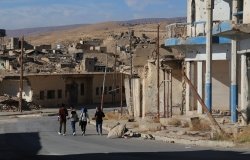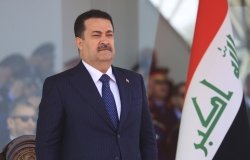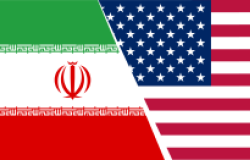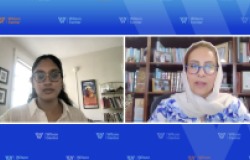Afghan Women in the New Constitution
Overview
Sultan's organization, Women for Afghan Women, held a conference last September in Kandahar entitled 'Women and the Constitution: Kandahar 2003." 45 Afghani women of different ethnicities gathered and produced a 16-point Bill of Rights toward ensuring gender equality in Afghanistan. The women presented to president Karzai the Bill of Rights on September 11, 2003. Karzai was in agreement with all but one of the proposed issues in the Bill of Rights, the minimum age for marriage, stating that this is a matter of civil law, not one for the Constitution. President Karzai had previously
appointed 7 women to the 35-member Constitution drafting group. The president had
announced earlier that women would comprise half of the appointees to the Constitutional ratification body, the Loya Jurga. Ultimately, approximately 100 of the 502 representatives were women.
The Constitution, ratified on January 4, 2004, was a "great start," but Sultan was disappointed that there was no ban on the Taliban taking office, for example. She expressed her concern about Article 3 of the Constitution, which states no law may be contrary to the beliefs of Islam. With the court system in shambles, she said, judicial reform is critical. Afghan women continue to face widespread violence and have little understanding of mechanisms available to improve their status. This is especially true outside of Kabul in the provinces.
The new constitution specifies equality between men and women and 25% of the seats in the lower house of Parliament and 17% of the upper house are set aside for women.
Sarwari commented that the implementation of reforms will be a great challenge, especially while the Supreme Court is one of the only official mechanisms in place. This is a religious Constitution, he said, and there is no Constitutional Court. There is a Human Rights Commission in Afghanistan, however as the Taliban is gathering again and Afghans are unaware of available mechanisms, women such as those Sultan visited during her visit cannot change nor improve their situation.
Sultan emphasized that neither national nor aid agencies' programs reach out to the majority of the population in rural areas who have not seen the progress or attention that Kabul has seen. Sultan's organization, Women for Afghan Women has set up women's centers and traveling doctors/small business development groups to meet rural populations' needs.
Hosted By

Middle East Program
The Wilson Center’s Middle East Program serves as a crucial resource for the policymaking community and beyond, providing analyses and research that helps inform US foreign policymaking, stimulates public debate, and expands knowledge about issues in the wider Middle East and North Africa (MENA) region. Read more
Thank you for your interest in this event. Please send any feedback or questions to our Events staff.










